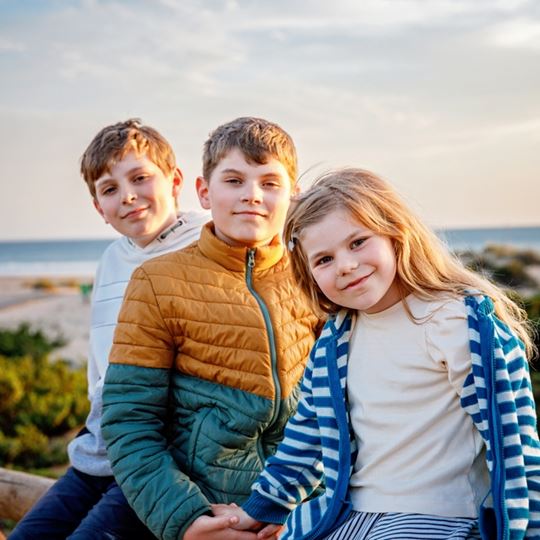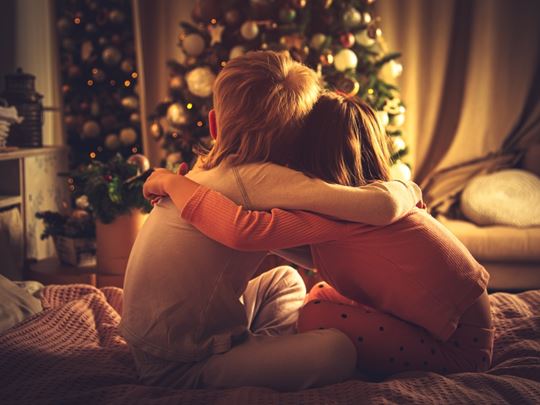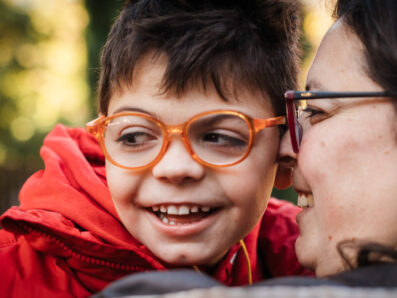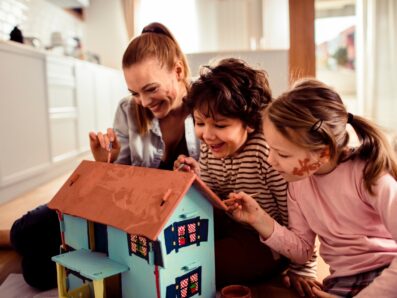How often are siblings separated in foster care?
The Children’s Commissioner’s Siblings in Care report 2023 states, “An estimated 37% of children with a sibling – that is 20,000 children – are separated from a sibling when placed in care.”
Why are siblings separated in foster care?
There are a few reasons why a child may be separated from their siblings. Sometimes, it’s in their best interest, for example, if the children really don’t get along and their well-being is at risk. They may also be separated if they or a sibling has a disability and needs individual specialised care.
Other times, it’s because foster parents don’t have the space in their home or feel unable to facilitate a sibling group due to worries about the challenges of fostering multiple children, especially in the case of larger sibling groups.
In fact, according to the Siblings in Care report, “57% of children with three siblings and 64% of children with five siblings” were placed in a different home from at least one of their siblings.

What happens when siblings are separated?
Sibling relationships are like no other. From the moment you’re born, you share the same home, childhood and experiences, remaining a constant presence for each other throughout life.
Although every child within a family can have a different view of family life, siblings are still by each other’s side through struggles within the family home. In some cases, older children can take on a parental role, meeting the needs of younger siblings if their parents are unable to, and younger siblings often look to older siblings for comfort and reassurance.
When children move into care, they often have to say goodbye to everything they’ve ever known. So imagine what it would feel like to have to say goodbye to the only people who really understand what you are going through. Being unable to live with your siblings may feel like a punishment, layering on top of the loss and grief they may already feel.
When siblings are placed in different homes, they are usually given time to see each other. The frequency of these arrangements, however, often depends on their locations and local authority.
The Siblings in Care report found that although most children are placed within the same local authority, 39% were placed between two. This can make planning contact between siblings more tricky to navigate and often means that siblings must travel longer distances to see each other.
Negative effects of sibling separation in foster care
Knowing you always have a sibling to lean on can be stabilising during the upheaval of moving into care, but when siblings are forced to separate, it can have a profound impact on the children’s well-being.

Loss of identity
Our histories form part of our identity. So when children in care live with their siblings, they live with people who share their past, helping them stay connected with that part of themselves. Siblings can also take on specific roles, which can help children understand where they fit into the world.
For example, if a young person takes on a parental role, caring for their siblings can become part of their identity. When the young person moves into care, they can become a child again, but their role as brother or sister has changed. This can be incredibly disorientating because they’ve become accustomed to playing this role. It can also be distressing as they can’t continue to provide this support and may wonder if their siblings are okay.
For younger siblings who rely on their older siblings for comfort and love, having this reliable support removed can be extremely painful, and both parties could experience sibling separation anxiety.
Psychological effects of separating siblings
Separating siblings in foster care can have a significant impact on their emotional and mental well-being. Siblings who’ve lived together through neglect and abuse can become bonded by their trauma. They may have had to rely on each other to survive their experiences and, as a result, develop a deep connection due to their shared history.
In their birth home, they may have also depended on each other to regulate their emotions, turning to each other when they were angry or sad, trusting that their comfort would make them feel better.
When siblings are separated, they lose that steadfast support and may wonder who they can turn to or trust with their thoughts, feelings and emotions. Even in the most supportive of foster homes, they may feel lonely and struggle to manage their emotions effectively. Feelings of loneliness could lead them into depression, and when they do see their siblings, they may experience high levels of separation anxiety when they say goodbye.
Challenging behaviour
When children and young people struggle to verbalise their feelings, they will likely communicate them through their behaviour instead. They may close off completely, keeping their thoughts and feelings to themselves or act out in an effort to make themselves heard.
Many children and young people in foster care carry the trauma of their past experiences, which can include being separated from everything they’ve ever known. It can take time to build a trusting relationship with their foster parents and feel able to verbalise their emotions. But, if they live with their siblings, it can give them an outlet for their emotions; they may spend time talking to their siblings, working through any feelings instead of acting their emotions out or being closed off.
Difficulty reconnecting
When siblings are separated for a long time, reconnecting can be difficult as their childhoods will no longer be fully shared. They may grow up in entirely different environments, which can lead to diverse opportunities, values, and perspectives on life. As a result, their relationships may become fragmented, making it difficult for them to rebuild a connection based on the adults they have become.
They may also link their siblings to their difficult experiences because they’ve not had the opportunity to create new positive ones. This could mean they never reconnect, and that bond is lost forever.
Preventing sibling separation in foster care
To prevent the harmful effects of separating siblings, we need more foster parents to foster siblings. By doing so, not only will you be preserving sibling bonds, but you’ll also be helping children and young people have happier childhoods where they can grow with their brothers and sisters.
When you foster with Orange Grove, we’ll be by your side every step of the way. We’ll work closely with you to find the right sibling group that will settle in well with you and your family. If you foster with children of your own, they’ll receive resources to help them prepare for their new siblings and have access to support groups to share their experiences.
As a foster parent, you’ll have around-the-clock support, including a dedicated social worker, a 24/7 helpline, regular support groups, extensive training and access to a therapist if needed. We build a village of support around our foster families, so whether you need support for children in foster care or additional training, we’ll ensure you have everything you need to develop in your role.
So, if you’d like to make a difference to children and young people and want to learn more about fostering siblings, we’d love to hear from you. Together, we can keep siblings together and help them have the happy childhood they deserve.





